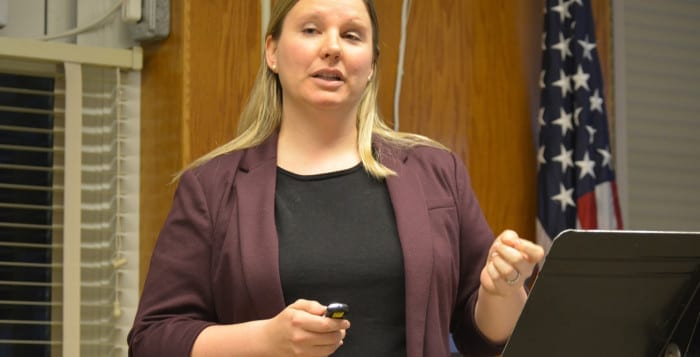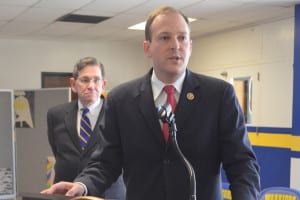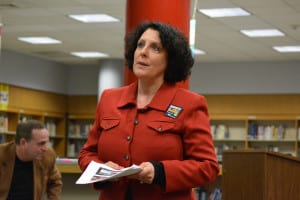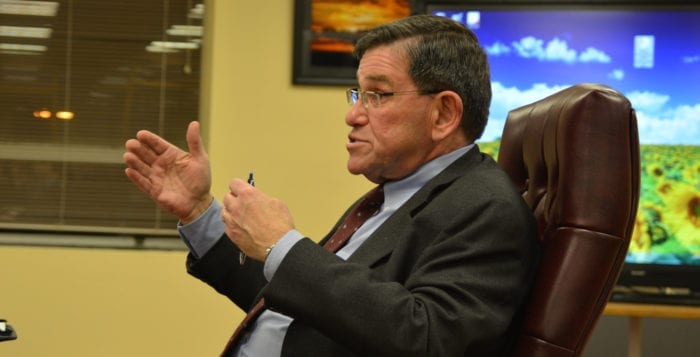
MaryEllen Elia, a former Florida superintendent, will succeed John B. King Jr., as New York’s next education commissioner and local education leaders across the North Shore are anxiously waiting to see if she’ll pass the test.
The New York State Board of Regents formed a seven-member search committee in January to find a replacement for King, who announced he was leaving his seat after accepting a federal senior advisor position to U.S. Secretary of Education Arne Duncan.
For a decade, Elia served as the superintendent of Hillsborough County, Florida, and was named state Superintendent of the Year in 2015. She is credited with much success in Hillsborough, as her district won $100 million from the Bill and Melinda Gates Foundation to help develop a teacher evaluation system that used student standardized test scores as a key factor.
The system, Empowering Effective Teachers, received national praise from Duncan and the American Federation of Teachers President Randi Weingarten, who stated in a press release the system provides extensive support for teachers and pay structure incentivizes teachers to take on more challenging positions.
Board of Regents Chancellor Merryl Tisch said in a press release that Elia has a remarkable record of working collaboratively with parents, students and teachers to get things done, which was crucial to make sure the implementation of the Common Core Learning Standards went smoothly for students and teachers in Florida.
Elia is delighted to return back to New York, and said in a press release that she is happy to work on behalf of the children. She still considers herself a teacher at heart, and believes that a good teacher is also a good listener.
The New York native had her first teaching job in Sweet Home Central School District in Amherst, N.Y., where she taught social studies for 16 years. In 1986, when her family moved to Florida, she became a reading teacher for three years and then held various administrative positions in the district until her departure.
During Elia’s 10-year tenure as superintendent of Hillsborough, students have received national recognition for their achievement. Fourth and eighth grade students earned high reading scores than any of the other 22 districts that participated in the 2013 Trial Urban District Assessment.
All of Hillsborough districts public high schools placed on the Washington Post’s list of “America’s Most Challenging High Schools” in 2012 and 2013.
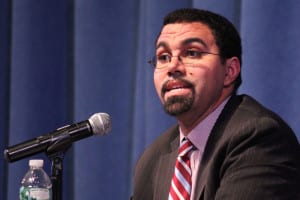
King stepped down last December amidst much controversy, specifically for his methods of implementing the highly controversial Common Core in New York.
Superintendents, politicians and members of the community all found problems with King’s techniques, feeling that the Common Core was rushed into the schools and not given enough time for teachers and students to understand it. Another fault was his background, which lacked any teaching jobs. King was a co-founder of Roxbury Prep, a charter middle school in Massachusetts.
“I was the first to call for his resignation, he developed a hostile approach and seemed oblivious to his role,” New York State Assemblyman Steve Englebright (D-Setauket) said.
Englebright said he hopes Elia will provide a fresh look at the system, and that she’ll bring her background as both a teacher and an administrator to the schools of New York.
One thing is for sure; Elia has her work cut out for her.
“I think she has a monumental task ahead of her, “ Timothy Eagen, Kings Park’s superintendent said. “On Long Island, about 50 percent of students in grades three through eight refused to take the assessments this past year. There is a lot of work to be done.”
Middle Country school district Superintendent Roberta Gerold felt there wasn’t a collaborative culture surrounding the application of the Common Core under King’s tenure.
“There needs to be a responsible conversation, and I don’t think we had that with King, he was reluctant to slow down,” said Gerold, who also serves as president of the Suffolk County School Superintendents Association.
Fellow superintendent, Joe Rella, of Comsewogue, said he is desperate for a more collaborative and ongoing conversation.
“This reform dialogue needs to stop, he said. “We need time to examine what has happened. I am optimistic on Elia’s hiring until further notice.”
The superintendent’s prayers may just be answered, as Elia stated that her first item of business as commissioner will be listening to the members of the community, parents, teachers, students and administrators.
Johanna Testa, vice president of the Miller Place Board of Education, said while she is 100 percent happy to see a new commissioner, who has experience teaching in New York, she still has some concerns over Elia’s track record of student test scores being tied to teacher evaluations.
“I’m just not convinced she’s the right person for the job,” Testa said.






